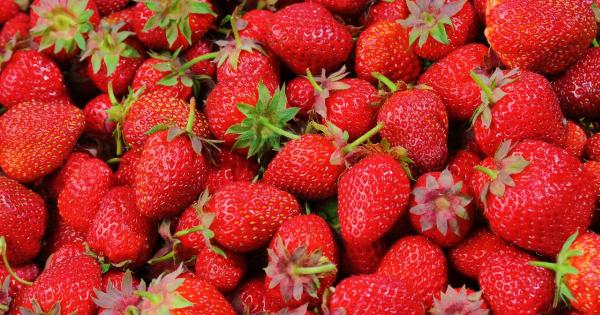A vegetarian diet is characterized by the exclusion of meat, poultry, and fish, and primarily revolves around plant-based foods such as fruits, vegetables, legumes, grains, nuts, and seeds.
Many individuals choose a vegetarian lifestyle for various reasons, including ethical, environmental, and health considerations. While there may be concerns about meeting nutritional needs during pregnancy with a vegetarian diet, numerous studies have indicated that it can indeed provide all the necessary nutrients for a healthy pregnancy.
Meeting Nutritional Needs
One of the main concerns for expecting mothers following a vegetarian diet is whether they can obtain all the essential nutrients necessary for a healthy pregnancy.
However, with proper planning and a varied diet, it is entirely possible to meet these needs without the inclusion of animal products.
Protein
Protein is crucial for the growth and development of the baby and plays a vital role in supporting various bodily functions of the mother.
Plant-based protein sources such as legumes, tofu, tempeh, seitan, and quinoa can provide an adequate amount of protein during pregnancy. By combining different protein-rich plant foods, vegetarian mothers can ensure they get a complete range of essential amino acids.
Iron
Iron is essential for the production of red blood cells and the prevention of anemia.
While plant-based sources of iron (non-heme iron) are less readily absorbed than heme iron found in animal products, pairing them with vitamin C-rich foods can significantly enhance absorption. Incorporating foods like lentils, spinach, tofu, and fortified cereals in the diet can help meet the iron needs of a vegetarian pregnancy.
Calcium
Calcium is crucial for the development of the baby’s bones and teeth.
While dairy products are prominent sources of calcium, a vegetarian diet can rely on calcium-rich plant foods such as leafy greens (kale, collard greens), tofu, almonds, and fortified plant-based milk alternatives like soy or almond milk.
Omega-3 Fatty Acids
Omega-3 fatty acids play a vital role in the development of the baby’s brain and eyes.
While fish is a common source of omega-3s, vegetarian mothers can obtain these essential fatty acids from plant-based sources like flaxseeds, chia seeds, walnuts, and algae-based supplements.
Vitamin B12
Vitamin B12 is predominantly found in animal products, and its deficiency can lead to neurological complications.
Therefore, it is essential for vegetarian mothers to monitor their B12 levels and consider taking supplements or consuming fortified foods like plant-based milk alternatives, breakfast cereals, and nutritional yeast.
Benefits of a Vegetarian Pregnancy Diet
1. Lower Risk of Gestational Diabetes: Studies have shown that adopting a vegetarian diet during pregnancy may reduce the risk of developing gestational diabetes.
Plant-based diets are typically lower in refined carbohydrates and saturated fats, which are associated with an increased risk of gestational diabetes.
2. Reduced Risk of Excessive Weight Gain: A vegetarian pregnancy diet that emphasizes whole foods and plant-based proteins may help prevent excessive weight gain during pregnancy.
This can have a positive impact on both the mother’s and baby’s health, reducing the risk of complications.
3. Reduced Risk of Pre-eclampsia: Pre-eclampsia is a potentially serious condition characterized by high blood pressure during pregnancy.
Research suggests that vegetarian diets, rich in antioxidants and anti-inflammatory compounds, may lower the risk of developing pre-eclampsia.
4. Lower Risk of Constipation: Vegetarian diets, naturally high in fiber-rich foods, can promote regular bowel movements and reduce the risk of constipation during pregnancy. This can contribute to overall comfort and well-being for expectant mothers.
5. Promotion of a Healthy Gut Microbiome: Plant-based diets, abundant in fiber, can contribute to a diverse and beneficial gut microbiome.
A healthy gut microbiome in both mother and baby is associated with various health benefits, including better immune function and reduced risk of certain diseases.
6. Environmental Sustainability: Choosing a vegetarian pregnancy diet aligns with environmental concerns by reducing the carbon footprint associated with animal agriculture.
This conscious choice supports sustainable practices and a healthier planet for future generations.
Considerations
While a vegetarian pregnancy diet can provide numerous benefits, it is essential to pay attention to certain considerations:.
1. Nutritional Supplementation: Some nutrients, such as vitamin B12 and omega-3 fatty acids, may require careful monitoring and supplementation in a vegetarian diet.
Consulting with a healthcare professional or registered dietitian can ensure these needs are adequately met.
2. Variety and Balance: Eating a wide range of plant-based foods is crucial for obtaining essential nutrients and preventing nutritional deficiencies.
Vegetarian mothers should focus on incorporating a diverse array of fruits, vegetables, whole grains, legumes, nuts, and seeds into their meals.
3. Adequate Caloric Intake: Pregnancy requires an increase in calorie intake for proper maternal and fetal development. Vegetarian mothers should ensure they consume enough calories from wholesome plant-based sources to meet their energy needs.
4. Food Safety: Pregnant women should pay attention to food safety practices, including proper storage, handling, and preparation of plant-based foods to prevent foodborne illnesses.
5. Personal Health Considerations: Each pregnancy is unique, and certain medical conditions or individual health needs may require specific dietary modifications.
It is important for vegetarian mothers to work closely with healthcare professionals to ensure the diet is tailored to their specific circumstances.
Conclusion
A vegetarian pregnancy diet, when well-planned and balanced, can provide all the necessary nutrients for a healthy pregnancy.
By incorporating a variety of plant-based foods, vegetarian mothers can meet their nutritional needs and support the growth and development of their baby. Additionally, there are several benefits associated with following a vegetarian pregnancy diet, including a lower risk of gestational diabetes, pre-eclampsia, and excessive weight gain.
However, it is essential to pay attention to specific considerations and consult healthcare professionals to ensure all nutritional needs are met during this critical period.






















